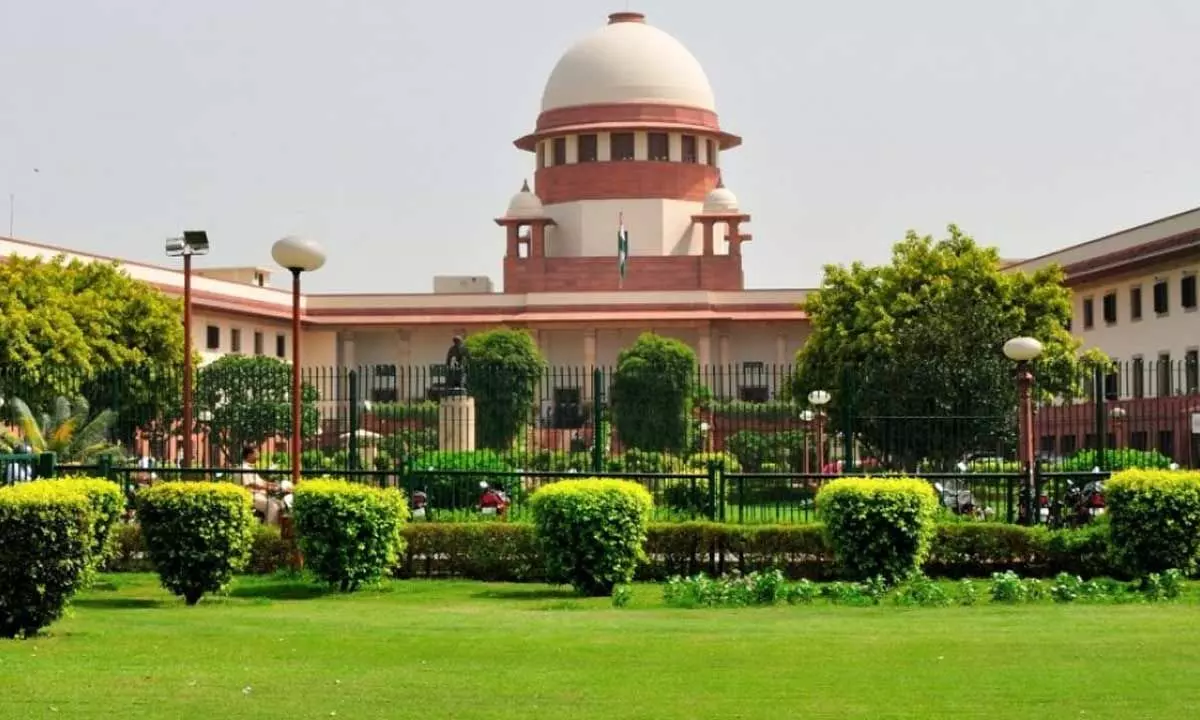Live-in relationship: Protect interests of women

Supreme Court
A public interest litigation (PIL) petition has been filed before the Supreme Court, seeking directions to the Central government to formulate guidelines for registration of live-in relationships and for social security of those in such relationships
A public interest litigation (PIL) petition has been filed before the Supreme Court, seeking directions to the Central government to formulate guidelines for registration of live-in relationships and for social security of those in such relationships. The plea has prayed that those in live-in relationships should be granted social equality and security. This is a petition relevant to the times and one only hopes that the Apex Court would do something to check the crimes committed, especially, against the women partners in such a relationship.
We have seen, of late, too many cases wherein women met with a gory end in the hands of their criminal partners. The fact that such live-in relationships end as gruesome tragedies once the equation sours between the partners should not be forgotten by us. The way Shradda Walker ended up in a refrigerator or the plight of Nikki Yadav who was throttled to death should wake us up. No doubt, courts have recognised such live-in relationships and blessed them. Still, such relationships carry a stigma in our societies. Children born out of such equations run into problems severally and acceptance of such families by their own kin and kith is always questionable.
The Supreme Court and other various High Courts in a number of judgments have held the view that 'live-in-relationships,' which are in the nature of marriage, are covered under the provisions of PWDVA (Protection of Women against Domestic Violence Act). In Badri Prasad Vs Dy. Director of Consolidation (1978), it held that live-in relationships in India are legal but subject to caveats like age of marriage, consent and soundness of mind. Legality of live-in relationship stems from the Article 19(a) – right to freedom of speech and expression – and Article 21 – protection of right to life and personal liberty – of the Constitution of India. Right to Life under Article 21: An individual has the right to live with a person of their interest with or without marriage. There are several rulings by several courts wherein the women partners are protected in various ways. But, not many in live-in relationships know that they have legal protection against exploitation just like a spouse of the male partner. Women are also eligible for alimony.
The Malimath Committee report has extended the definition of the term 'wife' to include a woman who has lived with a man like his wife for a considerable amount of time and thus is legally eligible to claim maintenance. In June 2022, the Supreme Court in Kattukandi Edathil Krishnan & Another Vs Kattukandi Edathil Valsan & Others ruled that children born to partners in live-in relationships can be considered legitimate.
The court ruled that such children are eligible to be part of family succession. Yet another vital aspect that the women should keep in mind is that live-in relationships are nowhere mentioned in Muslim laws and they are not mentioned even in Hindu laws, but the courts through their judgments have legalised it for Hindus, even giving property rights to children born in such relationships. Live-in relationships do not extend to Muslim personal law and children of Muslim live-in partners would be considered illegitimate as per existing law. There is a need to bring legislation on the subject so that there is clarity and courts don't bring conflicting rulings. The present petition speaks of several protective measures and one hopes the judiciary comes to the rescue of such women.








